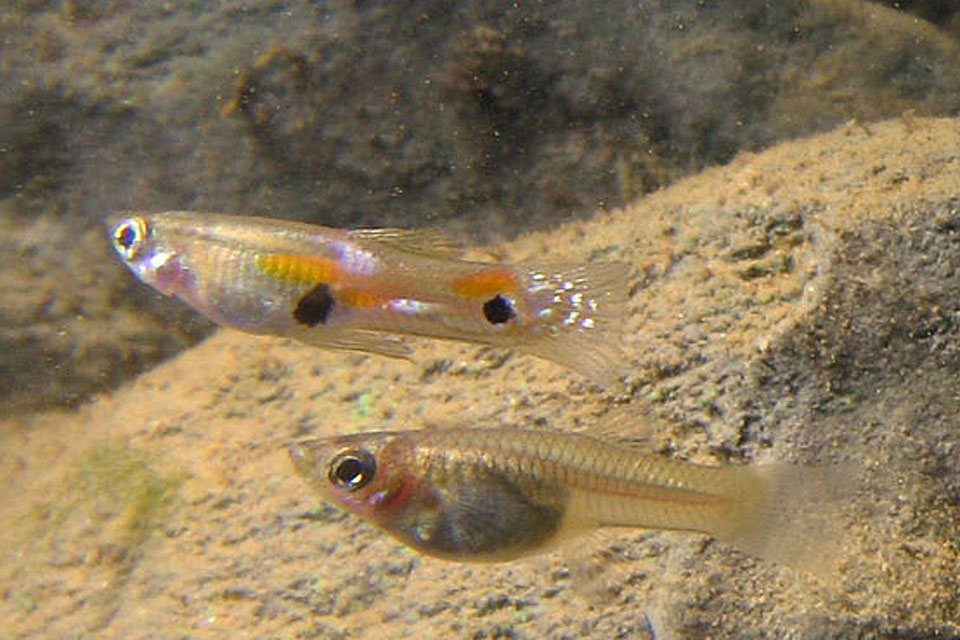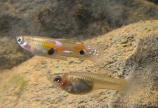Introducing guppies not the solution to Zika woes

What’s the best way to control mosquitoes in areas ravaged by Zika, malaria and dengue fever? Why not introduce something to eat them? How about guppies?
Bad idea, says University of Victoria biologist Rana El-Sabaawi, who studies the effects of invasive species and urbanization on food webs and ecosystem processes in BC, as well as Brazil, Trinidad, Tobago and parts of the US.
In a recent issue of the journal Biology Letters, she leads a paper that cautions against using guppies as a form of mosquito control, saying the method is not only ineffective, but also causes severe ecological damage. “Unfortunately, guppies don’t eat mosquitoes unless they have no other food source,” adds El-Sabaawi. “Releasing them into streams and ditches isn’t going to help.”
For the first half of the 20th century, guppies were used throughout the British empire to try and control mosquito populations, leading to invasions around the world. Now, with health officials struggling to control outbreaks of dengue and Zika, the practice has re-emerged in South America and Asia.
“When you introduce a species as invasive as guppies, they can out-compete native species of fish and prey on others. They spread disease and change the conditions of the ecosystem they’ve been introduced to,” she says. “Whatever species are left are worse off.”
Her paper suggests turning to cheaper and more effective methods, such as window screens to help reduce the rates of illness. “Many of the researchers I worked with for this paper live in areas affected by dengue and Zika and want to see these diseases controlled,” says El-Sabaawi. “But introducing an invasive species doesn’t help. It just creates another problem.”
Bad idea, says University of Victoria biologist Rana El-Sabaawi, who studies the effects of invasive species and urbanization on food webs and ecosystem processes in BC, as well as Brazil, Trinidad, Tobago and parts of the US.
In a recent issue of the journal Biology Letters, she leads a paper that cautions against using guppies as a form of mosquito control, saying the method is not only ineffective, but also causes severe ecological damage. “Unfortunately, guppies don’t eat mosquitoes unless they have no other food source,” adds El-Sabaawi. “Releasing them into streams and ditches isn’t going to help.”
For the first half of the 20th century, guppies were used throughout the British empire to try and control mosquito populations, leading to invasions around the world. Now, with health officials struggling to control outbreaks of dengue and Zika, the practice has re-emerged in South America and Asia.
“When you introduce a species as invasive as guppies, they can out-compete native species of fish and prey on others. They spread disease and change the conditions of the ecosystem they’ve been introduced to,” she says. “Whatever species are left are worse off.”
Her paper suggests turning to cheaper and more effective methods, such as window screens to help reduce the rates of illness. “Many of the researchers I worked with for this paper live in areas affected by dengue and Zika and want to see these diseases controlled,” says El-Sabaawi. “But introducing an invasive species doesn’t help. It just creates another problem.”
-- 30 --
Photos
Media contacts
Rana El-Sabaawi (Biology) at 250-721-6445 or rana@uvic.ca
Vimala Jeevanandam (Communications Officer, Faculty of Science) at 250-721-8745 or scieco@uvic.ca

